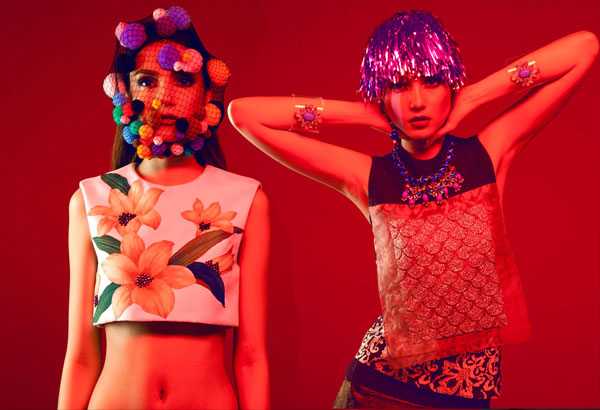During the recent Spring/Summer 2014 shows, designers showcased a global take on style through highly inspired prints, tribal elements and daring silhouettes that reflected — if not further reinforced — the blossoming of fashion multiculturalism.
Spring fashion consistently welcomes an influx of blooms, color and all things cheerful and bright. The season, if anything, celebrates ideas that are fresh, new-fangled and daring.
This year, the collections sent down the runways showcased multi-cultural elements through prints, detail and silhouettes. From tribal-inspired dresses to luxuriously embellished warrior goddess pieces, one of this season’s strongest fashion mantras is a culmination of eclectic elements from across borders, eras and cultures. On both the international and local fashion shows, we witness how design minds are all taking queue from this global-meets-tribal fever.
At Christian Dior, for instance, its edgy creative director Raf Simons sketches a trans-Dior universe where institutional silhouettes of the house like the suit (New Look) are immersed in stark street insignias, slogans and acid colors. In this collection, pretty meets edgy to create a definitive sartorial look for the season.
Working from a similar plane is Alexander McQueen designer Sarah Burton. That she can take over the reins of the celebrated high fashion label with such grace, brilliance and grace, it is only natural that Burton presents a Spring collection inspired by richly armored tribal princesses. In true McQueen form, the collection astounds with its impeccable workmanship. Critics praised how Burton ingeniously layered precious tailored pieces. But more than that, it was the inspired craftsmanship that made each piece a wearable piece of art. Intricate, high-precision beadwork made the simplest of patterns, like say a checks, a fashion miracle in itself.
Meanwhile, designer du jour Riccardo Tisci at Givenchy exhibits restraint — at least for the most part — as he presented a collection inspired by the meeting of two cultures: that of Africa and Japan. On the other end, he takes on shapes of Japan via Kimono-shaped sleeves and twisted and multilayered lapels. Then, he simultaneously injects lush African elements — drapery, subtle peek-a-boo cutouts, and sheer panels — onto the full collection resulting in a beautiful fashion collision.


